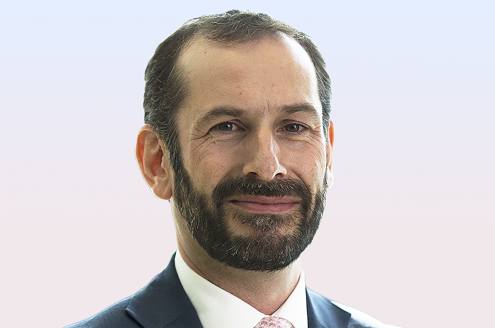Q. How is Swift’s Sanctions Screening service progressing and could there be similar initiatives for other areas of compliance?
A. We started this in April 2012 as a service particularly for smaller banks. They can choose to have their traffic screened and be informed of any hits. It is going quite well and we are signing up a lot of institutions. We will likely be offering the service to larger institutions but also adding other flows such as non-Swift messages and other kinds of traffic. We have added a service called sanctions testing, which is essentially a batch of messages with a diagnostic tool. You feed that through your sanctions filters and it allows you to tell if they are properly calibrated.
We are discussing with our community the launch of a Know Your Customer repository for correspondent banks. Related to that, we are launching a business intelligence [tool] that allows a bank to interpret the traffic data with its correspondents from a compliance perspective.
Q. How worried are Swift members about the cross-border aspects of the new regulations?
A. That is their area of concern and it goes all the way from having to maintain capital in lots of different countries, all the way down to having to report to multiple trade repositories, under different frameworks, in different countries.
The legal entity identifier discussion [a project to create a single, universal standard identifier to any organisation or firm involved in an international financial transaction] that is ongoing asks what is the structure, will it be a single utility, will it be multiple utilities, how are we going to feed it? The biggest challenge for banks are those intersections of national regulations.
Q. There are a lot of new infrastructures in the market. Will it all link up and how can Swift help its members with this?
A. We see this as an area where we can add value. Target2-Securities [T2S] is a good example. It is a new infrastructure being built and many members say they want to re-use what we already have in place in terms of standards, in terms of plumbing, in terms of protocol. And what we are effectively building is a form of interoperability hub that allows members to re-use existing connections and then allows T2S – the European Central Bank – to receive it in the format [they require] and in the protocol they have specified over their link.
Q. How is the increasing use of mobile technology changing the payments business?
A. A lot of mobile development is the last mile between a customer and the bank, and that doesn’t really impact upon us. But what we are offering now in Africa and rolling out to other parts of the world is what we call Alliance Connect Everywhere, which allows a bank to use 3G [third-generation telecommunications] as the final mile between them and Swift.
At present, you need to have either a leased line or an internet connection to connect to Swift as a bank, and in many parts of Africa they don’t have either. Alliance Connect Everywhere allows someone to use a 3G connection with a 3G sim card, with Swift scrambling encryption hardware to connect it over wireless networks.
Q. In contrast to mobile, the development of cloud services will impact the back offices of financial institutions. How is Swift responding to this?
A. From a customer perspective, we have always been a cloud service of sorts. We are operating in the cloud in our data centres, and so on. Of course, that claim is a little cheeky because the word [cloud in an IT sense] was only invented a couple of years ago but we were, if you will, a cloud service avant la lettre [before the word was invented]. What we are doing now is making available some services as a cloud service; with [Alliance] Lite2 being a good example of this. We are taking the Alliance software that used to run at the customer’s premises and making it available as a cloud service.
Q. There is a preponderance of new forms of data, or big data as it is known. What challenges does that present for Swift and for banks?
A. I think it is a real opportunity for everybody. It is an opportunity for the banks and an opportunity for us. When it comes to the data we have, we have launched some initiatives over the past few years to enable what we call business intelligence. This allows our members to analyse traffic data at the flow level, [identify] their counterparties, compare them against peer groups, and so on. We have seen good take up of this product.
At the same time, we realise it is our customers’ data, so we try to stay within the limits of confidentiality, while allowing our members to use it for analytical purposes. What they can do is have a look at their Swift flows in different countries and see where they are growing in correspondent banking.
Q. With so much data about and with Swift traffic peaking at close to 21 million messages per day, how can you ensure security?
A. When I started as the head of marketing [for Swift] five or six years ago, a lot of the feedback I got from customers was: ‘Swift is very heavy handed to deal with. I need dedicated hardware, double encryption, virtual private network boxes, and hardware security modules. This is the age of the internet, why is it all so complicated? Aren’t you security obsessed?'
You no longer hear that. I think people now all realise why we put these things in place. We come from a background where we are well prepared at the infrastructure level but, just as importantly, at the cultural level. Our people are very conscious of security and confidentiality, and how important it all is. We have a very strong culture in that respect.
At the same time, we cannot be complacent. We see the sophistication of cyber crime increasing rapidly, we have seen attacks on the financial services industry that were unprecedented in their sophistication, as well as attacks of bandwidth that were unheard of. So we are very much raising our game, investing in that area and trying to stay as far ahead of the curve as we always have been.
Q. Last year, Swift’s financial traffic grew below budget. What does that tell us about the economic environment and has it changed since then?
A. Last year we had between 3.5% and 4% FIN [Swift's messaging service] traffic growth, whereas we had budgeted for about 7% or 8%. This year, it is the other way round. This year we had budgeted again for about 7% or 8% growth, and we are seeing 10%. That reflects a real change in the economy. To some extent we are a leading indicator, which is why we were able to launch the Swift Index, which is essentially forecasting economic growth based on Swift traffic.
What this tells you about the economy is that last year was a difficult year and this year is shaping up to be a lot better. One interesting thing is the big swing in securities, which makes up between 40% and 45% of our traffic. This was almost flat last year and that was unheard of. Securities has grown in double digits for at least 10 years. Last year, it was [very close to 0%]. This year, it is back with a vengeance at 10% or more.
Q. We have seen a huge increase in the use of the Chinese renminbi as a payments currency and it is now in 11th position against other international currencies. How high will it go?
A. It has moved very rapidly from number 20 to number 11, and before this year is over it might well be in the top 10. While it is number 11, it is still less than 1% of global payments by value so it will get harder as it gets further up in the chain. Number one, number two and number three – there you are talking of [very large] market shares for the US dollar and the euro, and a little less for the UK pound. It will be easy [for the renminbi] to move into the top 10, but after that things will get tougher.
Q. Sibos is in Dubai this year. Why did you pick Dubai and how will the agenda reflect the conference’s location in the Middle East?
A. Dubai was chosen because we think it is an exciting part of the world to be in. We have adapted the programme. We have created a day focusing on Dubai, the Middle East and Africa. We are seeing very good participation from Middle Eastern banks and United Arab Emirates banks in particular. We will have a number of sessions dedicated to that part of the world and on [relevant topics such as] Islamic finance. It is an exciting place to hold Sibos.






